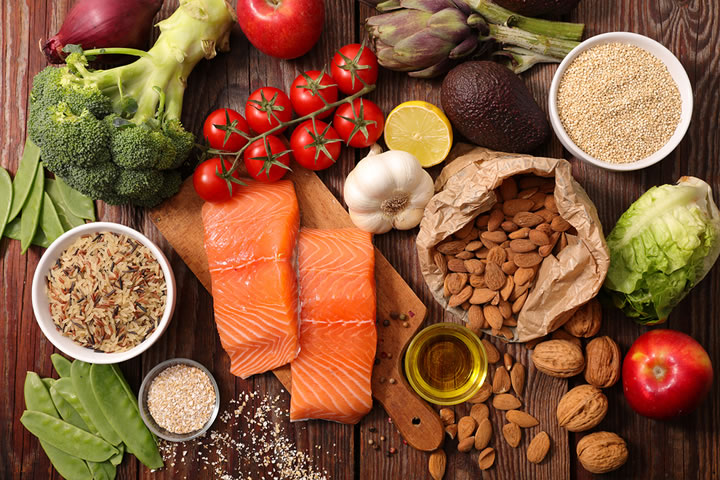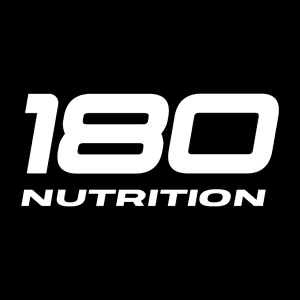There are still an alarming number of people out there giving the message that you should avoid fat as part of a healthy diet. And an even more alarming number of people who believe them!
I hear from people all the time who’ve removed fat from their diet, yet they’re feeling crappy and still putting on weight even though they’re doing what they believe is the right thing. So, it’s time to put the myths about fat to bed once and for all, and let you know why the right kind of fat should be your friend and not your foe.
Incorrect fat facts have, quite literally, been fed to us by the food industry for years, and we’ve been sold ‘low-fat’ as the only way to lose weight. The real truth is that not all fats were created equal and more than half of them should not be feared. Quite the opposite; some fats are extremely GOOD for you and yes, before you ask; even if you’re trying to lose weight! Learn more about why we’re told to avoid fat in this expert interview here.
But first, the fats that you DO need to avoid.
The bad: Trans fat
It is quite right then when you think about creating a nutritionally balanced diet, the trans fats (or bad fats as we like to simplify them to), need to go!
Trans fatty acids is their full name, and when you consume these on a regular basis, they increase cholesterol and your risk of heart disease. The food marketers have removed the word ‘acid’ when describing trans-fats on their labels to lull you into a false sense of security that you’re not eating acid! The ‘low-fat’ margarine instead of butter isn’t looking like such a desirable option now, is it?
Trans fatty acids are highly prominent in vegetable oils, fried foods such as fast foods and doughnuts, processed foods such as chips and biscuits and baked foods such a cakes, pastries and pies.
Consuming anything from that group on a regular basis will undoubtedly lead to illness and should be avoided at all costs.
If you’re unsure, look at the label before you put something in your basket; trans fatty acid is labelled as ‘trans fat’ and it. Is. Not. Good!
The good: Monounsaturated and polyunsaturated fat
It has been proven time and time again that diets rich in monounsaturated and polyunsaturated fat can improve cholesterol and reduce your risk of heart disease.
Good fats are prominent in nuts and avocado, olives, natural nut butters, oils (check the label if you’re not sure) and sunflower seeds. Salmon and sardines are high in omega-3 fatty acids which improve your heart health leading to a decrease in your risk of coronary heart disease, and lower blood pressure; omega 3’s are one of the healthiest sources of fat, and your body needs them.
But for those who see the benefits but are focussed on their waistline, here are three ways that adding good fats to your nutrition plan will help you lose weight.
1) Good fats fill you up
Next time you think that weight loss involves hunger pangs and starving yourself, try adding a quarter of an avocado to your salad. The fat is digested slower which means your meal will stay with you for longer. This will leave you less likely to make poor food choices as your stomach tells your brain how hungry you are.
Fat tip: I like to add a quarter of an avocado, some olive oil or a handful of nuts to most meals to keep me fuller for longer.
2) Eating fat reduces body fat
That might sound like a contradiction but stick with me! When you add fat to your diet, your body gets used to using fat as an energy source. Once your food has been digested, the body then gets to work on taking fat from existing fat cells (think bums, tums and thighs) for energy. Without dietary fat, your body looks for carbs and other food-based sources of energy to keep you going.
Consuming good fats keeps your body running via the sources you want it to be taken from the most – your existing fat stores.
This is how you lose the kilos healthily.
Fat tip: Have a handful of almonds as a snack so your body learns to use fat for its energy rather than carbs.
3) Fat tastes good
The problem we have is that so many people have been sold on ‘low-fat’, but once you take the fat out, your food tastes awful! That’s when you see the added sugar, chemicals and processed ‘trans-fat’ added to your products so that manufacturers create a product with some flavour.
A low-fat product is undoubtedly a high-crap product containing sugar and other ingredients which make you put weight on and don’t do your body any good at all.
Fat tip: Buy natural, whole foods without a label. But if you have no choice then learn to read food labels, so you know what’s good and what’s bad.
4) Fat helps your body absorb vital nutrients.
Many foods are fat soluble which means they need the fat to help them absorb in the body. You can eat as much vitamin A (carrots) and vitamin K (spinach) as you like, but without a small serve of fat; your body won’t be able to absorb those nutrients, and you may as well have not eaten them at all.
Fat tip: Cook in olive oil at a medium temperature or use an unsaturated oil-based dressing for salads.
Takeaways:
- If you’re trying to lose weight, it is important to remember that good fats do still have a high-calorie content so you should enjoy them in moderation.
- If you’re looking at food with a label, then bear in mind that anything with ‘trans fat’ is not good for you and you should avoid it at all costs. Learn more about reading food labels here.
- Your body needs monounsaturated and polyunsaturated fats to increase heart health, lower cholesterol and burn existing body fat.
- Add a small serve of almonds, walnuts, avocado, olive oil, olives or sunflower seeds to every meal and watch the scales drop and your health improve. Start today.







